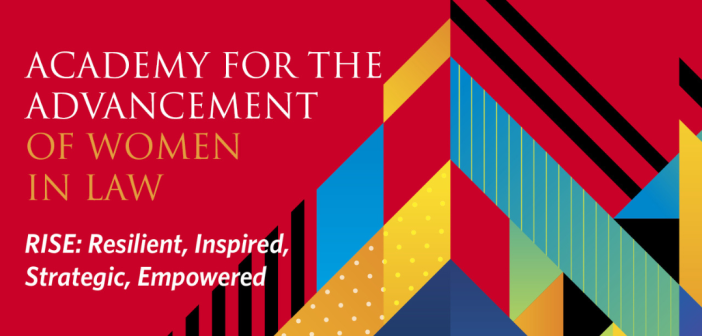When the organizers of Fordham Law’s executive education program focused on women in the legal profession needed a keynote speaker, they didn’t have to look any further than Fordham University President Tania Tetlow.
Tetlow, who worked as a commercial litigator and federal prosecutor before entering academia, reflected on her personal experiences with double standards, biases, and the excessive expectations placed on women working in the legal field.
“The framework I had coming up in the profession was: if, as a woman, you clear the bar by double, you will do fine. If you work twice as hard—if you are extraordinary—you will make it,” said Tetlow. “But the issue is how to make sure that you don’t have to be twice as good to make it, because we are wasting so much talent in this world when we let all of the people who are not quite extraordinary but pretty amazing go by the wayside—when we lose so much of the best lawyering, the best of every profession, because we waste the talent of women.”
Tetlow spoke at the opening day of the third annual Academy for the Advancement of Women in Law: RISE—Resilient, Inspired, Strategic, Empowered. The six-week program features lawyers and other thought leaders with expertise in women’s empowerment to share best practices for creating more inclusive environments that enable the advancement of women lawyers globally.
Changing the Paradigm
This year’s program features a dialogue between men and women leaders of global law firms, discussions on the advancement of women in the legal profession, how to change the law firm paradigms for women in law, and an exploration of the challenges facing intersectional identities in the workplace. The complete schedule is available online.
“We are grateful to run this program for a third time, when the topics considered remain more relevant than ever,” said Director of International and Non-J.D. Programs Bernard Daraz, an organizer of the program. “Our panelists and participants navigate complex discussions and share concrete, actionable steps that women and men can take to ensure a more equitable and inclusive profession.”
Tetlow noted that while progress has been made for women in law in recent years— women now make up 55% of law school graduates according to the American Bar Association—women in the law still remain greatly underrepresented at the leadership level. She urged women to advocate for equity when they reach leadership positions.
“It is often true that when you get power, it is marginalizing to use that power on issues of equity,” said Tetlow. “But I hope that all of you—those of you who have it and those of you who someday will have it—will go ahead and spend some of that capital to make the world different, because it’s the whole point of getting there.”




